Introduction to Panteion University:
Introduction and Overview
Panteion University is located in Athens, the capital of Greece, and is one of the three oldest political science universities in Europe. The school has an important position in the fields of social sciences and political sciences, providing undergraduate, graduate and doctoral education, covering multiple disciplines such as political science, sociology, economics, psychology, etc.
History and Establishment
The school was founded in 1927 by Georgios Vlagoudis and Alexandros Pantos, and was originally named "Faculty of Political Science". On November 18, 1930, Greek President Pavlos Kontouriotis held an inauguration ceremony for the central building of the university, with 200 students attending. In 1931, the school was renamed "Panteos School of Political Science". In 1989, the school was renamed to its current name.
School Strength
Faculty: It has 360 teaching and administrative staff, including well-known scholars and experts in the fields of social sciences and political sciences, to provide students with high-quality teaching and guidance.
Academic research: It has established cooperative relations with 66 university educational institutions in 17 European countries, actively participated in international exchange and cooperation projects, such as the Erasmus + program, and absorbed advanced European education levels and methods through communication with European universities. The school has three research institutes, 18 research centers and four laboratories. Its research results in the fields of human rights and democratization, social policy, media and culture have a certain influence internationally.
Nature of the school
Public university, funded and managed by the Greek government.
Educational philosophy
Focus on cultivating students' critical thinking, innovation ability and social responsibility, and through the combination of theoretical teaching and practical activities, enable students to have solid professional knowledge and the ability to solve practical problems; emphasize international education, cultivate students' international vision and cross-cultural communication ability, and encourage students to participate in international exchange and cooperation projects; attach importance to the combination of academic research and social needs, actively promote the transformation and application of scientific research results, and contribute to social development.
Key laboratories and disciplines
Key laboratories: No particularly well-known public key laboratory information has been found, but the school has four laboratories to support teaching and research work.
Key disciplines: Political science and history, public administration, social policy, social anthropology, law, criminology and political science, sociology, international relations and European studies, economics and regional development, communications, media and culture, psychology, etc. are the school's advantageous disciplines.
Faculties and majors
The school currently consists of four colleges and nine academic departments, as follows:
Faculty of Social Sciences: including the Department of Sociology, the Department of Social Anthropology, and the Department of Psychology.
Faculty of Political Sciences: with the Department of Social Policy, the Department of Political Science and History.
Faculty of Economics and Public Administration: with the Department of Public Administration, the Department of Economics and Regional Development.
Faculty of International Studies, Communication and Culture: including the Department of International, European and Regional Studies, the Department of Communication, Media and Culture.
Rankings
It received positive evaluations in the external evaluation in 2016, but there is no exact international comprehensive ranking. In Greece, it is one of the universities with high reputation and influence in the fields of social sciences and political sciences.
Fees
Tuition fees at Greek public universities are relatively low. Undergraduate courses generally cost around 500-1000 euros per semester, and graduate courses cost around 800-1500 euros per semester. The specific fees vary depending on the major.
Campus Environment
Teaching Facilities: The school has modern teaching facilities, including teaching buildings, libraries, laboratories, etc. The library is located in the central building of the university, with an area of 1,750 square meters and four floors, providing automated services, printed and electronic collections, and online services.
Cultural Environment: The school is located in Athens, where students can fully enjoy the rich cultural resources of Athens, such as museums, theaters, art exhibitions, etc., providing students with a broad space for extracurricular learning and cultural experience.
Living Facilities: The surrounding living facilities are complete, including canteens, dormitories, sports facilities, etc., to meet the daily needs of students.
-
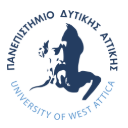
University of West Attica
-

Technical University of Crete
-

International Hellenic University
-
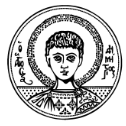
Aristotle University of Thessaloniki
-
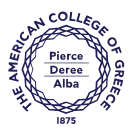
The American College of Greece
-
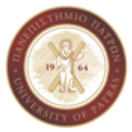
University of Patras
-

University of Ioannina
-

Democritus University of Thrace
-

Hellenic Open University
-
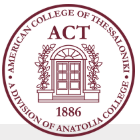
American College of Thessaloniki
-

Mesoamerican University
-

Istmo University
-

Mariano Galvez University of Guatemala
-

Regional University of Guatemala
-

Galileo University
-

Francisco Marroquín University
-

Rafael Landívar University
-

University of the Valley of Guatemala
-

University of San Carlos of Guatemala
-

Technological Institute of Tlaxcala Plateau
-

Golfo University
-

Technological University of South Sonora
-

Technological University of Huejotzingo
-

Tizimín Institute of Technology
-

Chilpancingo Institute of Technology

